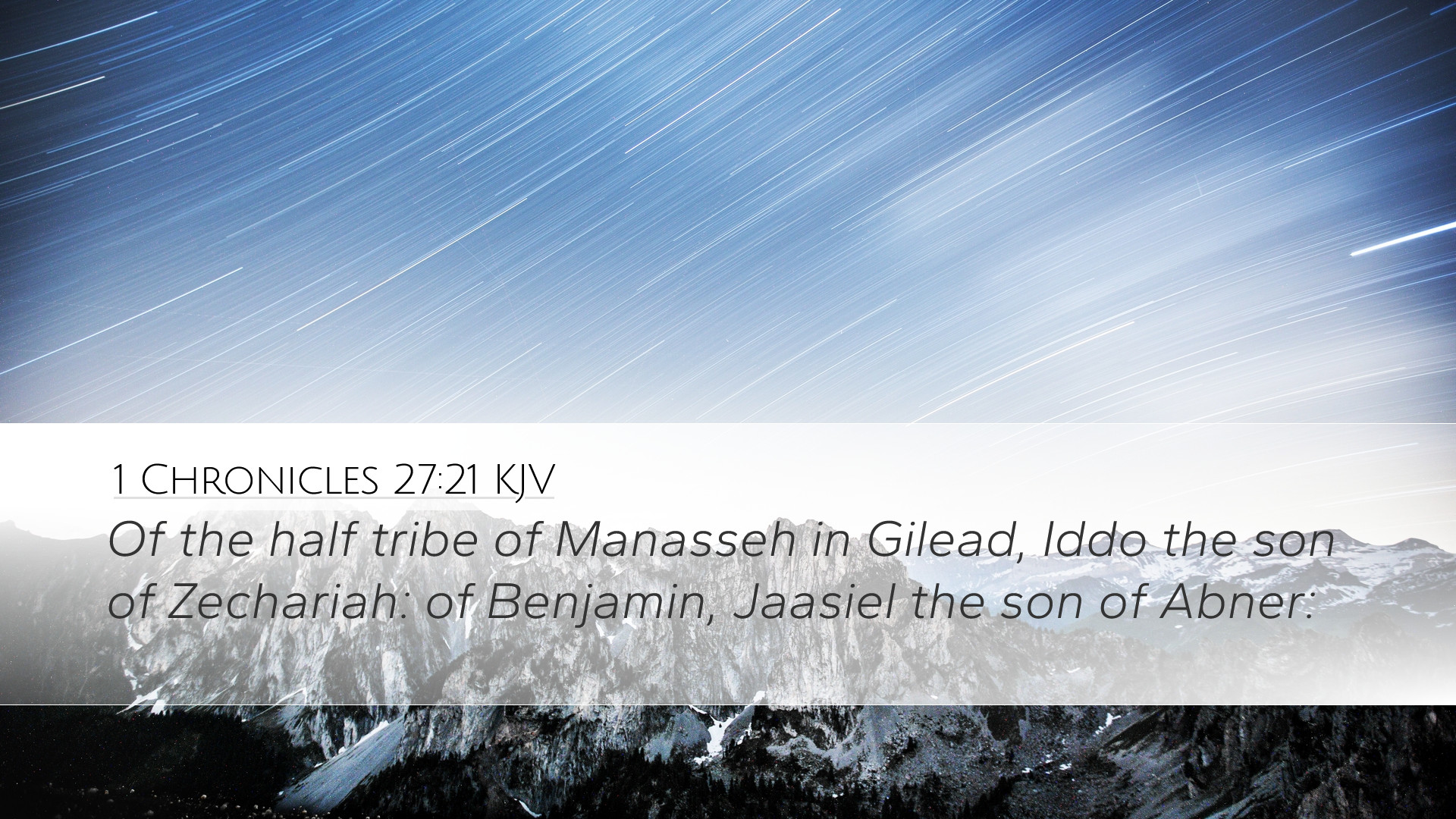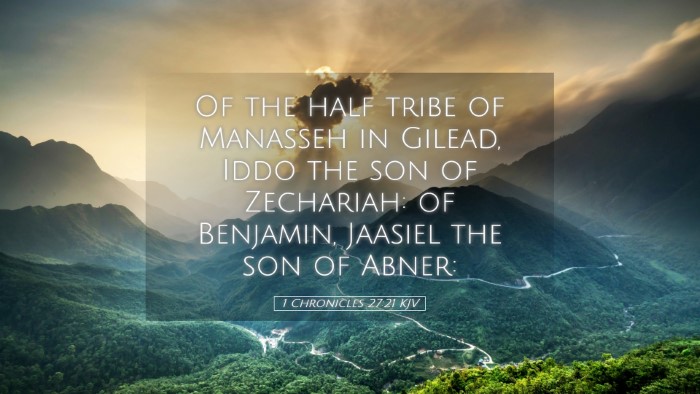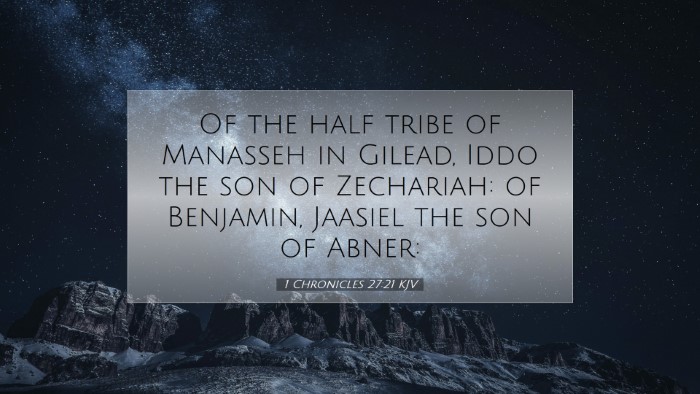Commentary on 1 Chronicles 27:21
Verse: "Of the half tribe of Manasseh: and in Gilead; Jeiel the son of Abdon.
Introduction
This verse is part of a broader context in which King David organized his kingdom's administration and military. It highlights the roles of various leaders and their contributions to the nation of Israel. Understanding this verse requires an exploration of historical, theological, and practical implications for God's people, particularly focusing on the implications for leadership and service.
Contextual Background
As we delve into this passage, it's important to consider the historical backdrop of Chronicles. Written post-exile, the Chronicles emphasize God's faithfulness and the importance of proper worship and leadership within Israel. David’s reign is presented as a model for future generations. This specific mention of Jeiel the son of Abdon illustrates the inclusion of tribal leaders in managing the affairs of Israel, particularly in administering the lands beyond the Jordan.
Significance of Tribal Leadership
- Representation: The half-tribe of Manasseh played a crucial role in the configuration of Israelite leadership. Their placement in Gilead, an area filled with strategic importance, highlights God’s providence in distributing land and leadership.
- Trustworthy Leadership: The selection of leaders like Jeiel indicates a system based on trust and capability. Leaders are chosen not only for their familial ties but for their abilities to govern effectively.
Insights from Public Domain Commentaries
Matthew Henry's Commentary
Matthew Henry emphasizes the order and structure of David’s government, elucidating how this helps maintain peace and righteousness in Israel. He notes that effective leadership requires both spiritual and administrative qualifications, highlighting the need for leaders who are not only competent but also godly. Jeiel’s mention signals the importance of the lesser-known leaders whose contributions are vital to the broader narrative of God's providence in Israel.
Albert Barnes' Notes on the Bible
Barnes provides a detailed analysis of the tribal allocations and their implications for the nation’s defense and governance. He points out that the half-tribe of Manasseh, including members in Gilead, was instrumental in the military organization of Israel. This illustrates a divine ideal of community involvement, where every tribe had its leader to maintain order. Barnes further notes that God’s purposes often unfold through the most ordinary people in service, reflecting the call for believers to serve faithfully in their respective contexts.
Adam Clarke's Commentary
Clarke delves into the historical significance of Gilead and its warriors, suggesting that this area was known for producing valiant men. He connects the leadership of Jeiel to the broader narrative of God raising capable leaders from "unexpected" places for His plans. Clarke also underscores the importance of acknowledging every individual’s role within the community of faith, reinforcing the idea that every contribution, no matter how small, is significant in the sight of God.
Theological Themes
Leadership in the Community
This verse prompts reflection on the nature of leadership in the Christian community. The biblical model points towards service, humility, and accountability. Jeiel’s leadership of the half-tribe serves as a reminder that divine leadership often manifests in collaborative and communal ways.
Divine Providence
The mention of specific individuals in the text resonates with the overarching theme of God’s providence. Each leader's appointment is a testament to God’s hand in historical events, as He sovereignly chooses individuals to fulfill His purposes in their time. The presence of Jeiel among the leaders serves as an assurance that God's will is accomplished through human agency.
Application for Today's Church
- Encouragement for Leaders: Today's church leaders can find encouragement in the fact that God uses ordinary individuals to accomplish His extraordinary plans. Just as Jeiel led within his tribe, every leader is called to serve faithfully in their designated sphere.
- Valuing Every Role: The church must recognize and value every member’s contribution. Jeiel's inclusion serves to remind congregations that each role, however humble, is integral to the body of Christ.
- Commitment to Structure: Effective church governance requires careful consideration of leadership structures that honor God and serve the people effectively, reflecting the organization seen during David’s reign.
Conclusion
In 1 Chronicles 27:21, the mention of Jeiel as a leader for the half-tribe of Manasseh serves as a poignant reminder of God's sovereignty, the importance of faithful leadership, and the need for each member of the community to play their part in God’s unfolding plan. As pastors, students, and scholars reflect on this verse, they are encouraged to seek God’s guidance in leadership and service, recognizing that every contribution furthers His Kingdom.


